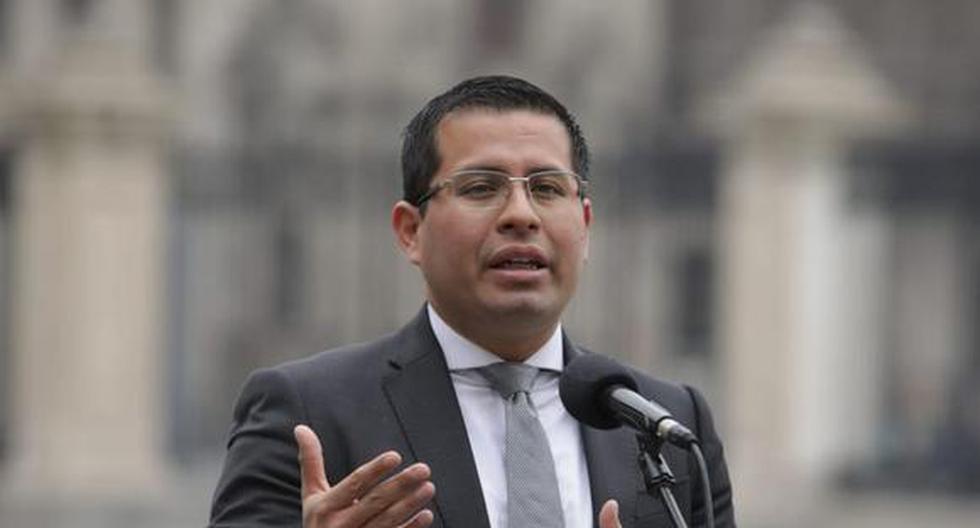Sao Paulo.- Disinformation has soiled the pulse between President Jair Bolsonaro and former president Luiz Inácio Lula da Silva and follows a growing trend two weeks before the second round of elections in Brazil, with daily complaints in the Justice
Source: Efe
The most polarized campaign in the country’s recent history has entered a swampy with cross attacks of all kinds on television, social networks and messaging applications, more difficult to track as they are encrypted.
This warmer climate has derived, according to researchers consulted by EFE, in a “considerable increase in the volume of fake news” ahead of the ballot, for which the polls place Lula as a favorite with about five points ahead of Bolsonaro, leader of the Brazilian extreme right.
NEW METHODS OF DISINFORMATION
The president of the Superior Electoral Court (TSE), Judge Alexandre de Moraes, warned on Thursday about “Two new modalities of disinformation” that are growing “a lot” since the curtain went up for the second round on October 30.
The first is “the manipulation of true premises” to reach a “false conclusion” and the second is the use, by the candidates’ campaigns, of “fake news” under cover of the fact that they are published on supposedly journalistic portals.
In this context, the TSE is working more than ever to contain the dissemination of content considered untrue, especially on the Internet, after being surprised by the mass shooting of false messages in the 2018 elections, which Bolsonaro won.
So far in 2022, the court has received at least 334 lawsuits in which the presidential candidates have questioned publications and requested their withdrawal, according to official data. Judicial injunctions for or against occur daily.
In addition, he has tightened the nuts on social networks, which are also contributing their grain of sand.
An example. Between the start of the campaign (August 16) and the first round of the elections (October 2), Meta removed 310,000 content on Facebook and Instagram for violating its policies of violence and incitement; 290,000 for hate speech; and 250,000 for harassment and intimidation, the group disclosed this week.
However, in this second round the number of false news has grown “significantly”, with content “more current and related to the day to day of the campaign”, Rodrigo Carreiro, a researcher at the National Institute of Science and Technology in Democracy, explains to EFE. Digital.
“Fake news is being generated almost daily,” he says.
FROM CANNIBALISM TO THE NARCOGORRA
In this phase of theanything goes”, Bolsonarist groups linked Lula, leader of the Workers Party (PT), with a gang of drug traffickers when wearing a cap with the acronym CPX in an act in the Alemao favela complex, in Rio de Janeiro.
Those groups propagated that those letters referred to a criminal faction, when in fact they are just the acronym for “complex”.
On the other hand, the PT used in its propaganda an excerpt from an interview that Bolsonaro granted in 2016 to The New York Times in which he spoke about a cannibalistic experience in an indigenous community.
The TSE took action and suspended the piece on understanding that was taken out of context and implied that the head of state would be capable of consuming human flesh.
“I think that Lula’s militancy perceived that the game is being played in the field of fake news and also started to play there,” Carreiro appreciates.
Although he clarifies that at the moment not in an organized way, unlike the so-called “digital militias” linked to the extreme right, whose actions are being investigated by the Supreme Court in a process in which Bolsonaro appears for his constant attacks on the voting system.
From these same groups it also emerged that Lula had a pact with the devil. On the other shore, at Bolsonaro was attributed a tweet criticizing the Catholic Church. All fake.
“Religious issues have had an impact in recent weeks and both sides have played with it,” political scientist Sabrina Almeida, a professor at the Getulio Vargas Foundation’s School of Communication, Media and Information, tells EFE.
Although he considers that society is today more aware when it comes to informing itself and not spreading information of questionable credibility, which, despite the controls, continues to circulate inside and outside the networks.















